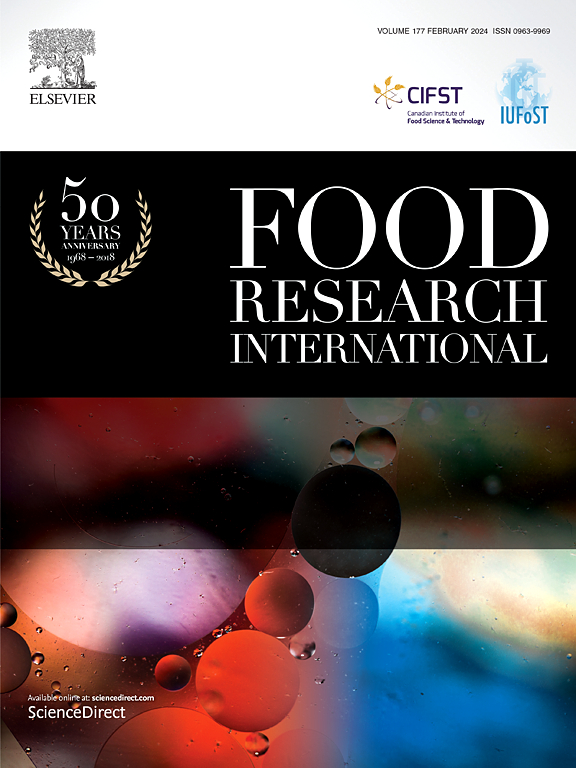Integrated proteomics and metabolomics to clarify the essential beneficial mechanisms of L-theanine in alleviating ISO-induced cardiac damage in mice
IF 7
1区 农林科学
Q1 FOOD SCIENCE & TECHNOLOGY
引用次数: 0
Abstract
L-theanine (L-Thea), a bioactive amino acid found in tea, demonstrates remarkable nutraceutical properties. Isoproterenol (ISO) has been utilized as a reliable and potent agent to induce heart failure (HF) in murine models. The aim of this study was to explore the mechanisms through which L-Thea alleviates ISO-induced cardiac damage via the examination of proteomic and metabolomic data. Herein, we first successfully developed an ISO-induced cardiac injury model in mice. Then, the intervention with L-Thea demonstrated an improvement in cardiac performance and enhanced ventricular function. The results of histological assessments suggested that L-Thea has the potential to mitigate inflammatory infiltration, cardiomyocytes loss, and myocardial fibrosis in heart tissue affected by ISO-induced cardiac injuries in mice. Moreover, the proteomic data indicated that L-Thea led to a significant reduction in apoptosis, the p53 signaling pathway, and the IL-17 signaling pathway within cardiac tissue. Significantly, there were five KEGG pathways that were shown in both the proteome and metabolome, including apoptosis, purine metabolism, cAMP signaling pathway, ABC transporters and cytochrome P450. The western blot results further confirmed that L-Thea induced the downregulation of BAX (pro-apoptotic protein) and the upregulation of BCL-2 (anti-apoptotic protein), thereby suppressing apoptosis in the cardiac tissue of mice. Collectively, L-Thea possesses the capacity to function as a dietary supplement for the prevention or management of cardiac damage induced by ISO.
求助全文
约1分钟内获得全文
求助全文
来源期刊

Food Research International
工程技术-食品科技
CiteScore
12.50
自引率
7.40%
发文量
1183
审稿时长
79 days
期刊介绍:
Food Research International serves as a rapid dissemination platform for significant and impactful research in food science, technology, engineering, and nutrition. The journal focuses on publishing novel, high-quality, and high-impact review papers, original research papers, and letters to the editors across various disciplines in the science and technology of food. Additionally, it follows a policy of publishing special issues on topical and emergent subjects in food research or related areas. Selected, peer-reviewed papers from scientific meetings, workshops, and conferences on the science, technology, and engineering of foods are also featured in special issues.
 求助内容:
求助内容: 应助结果提醒方式:
应助结果提醒方式:


